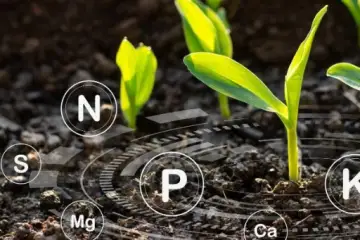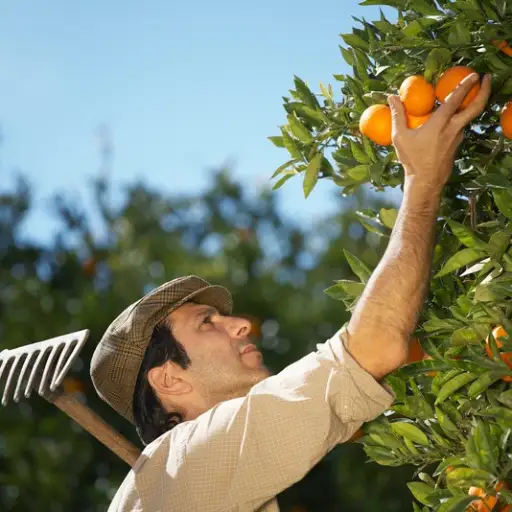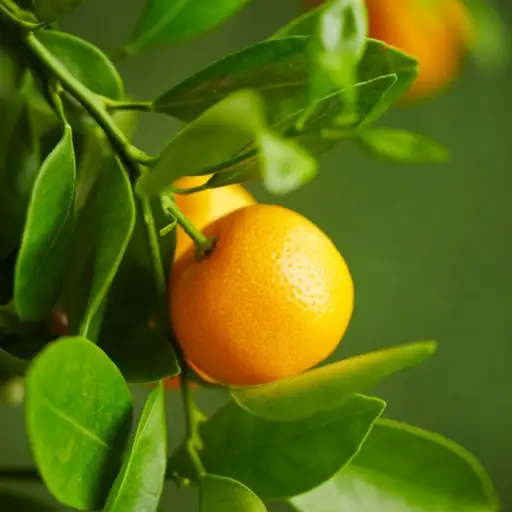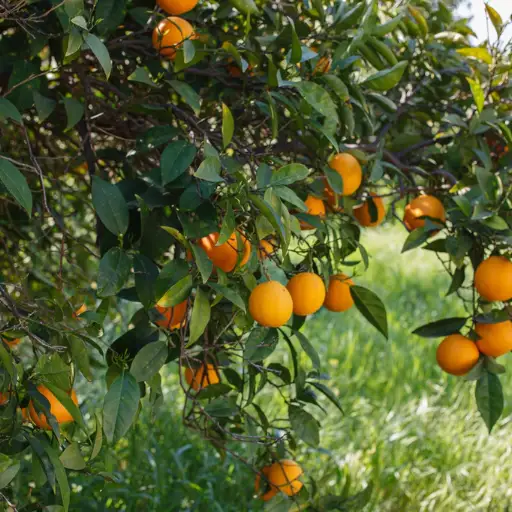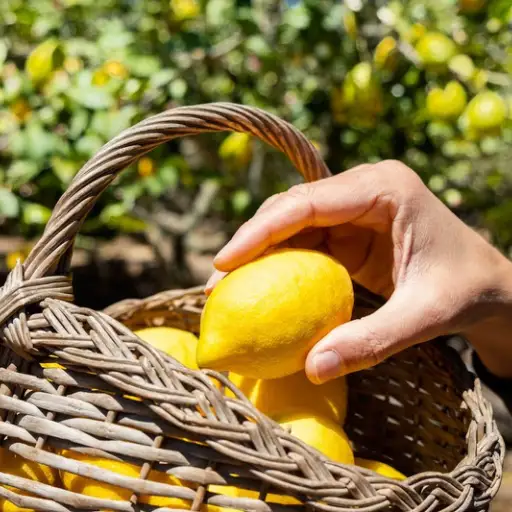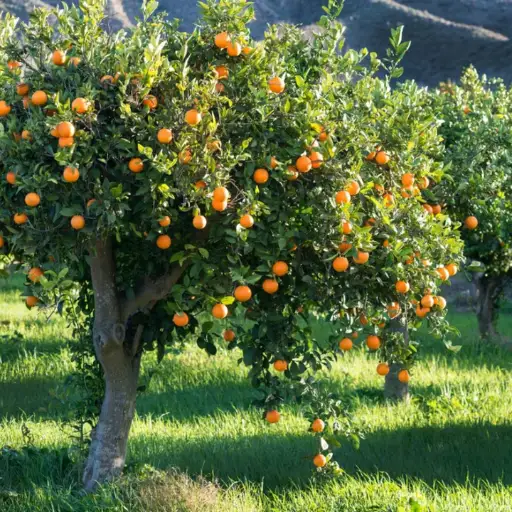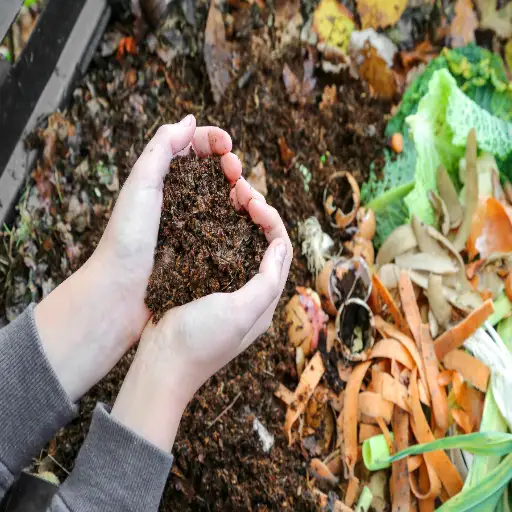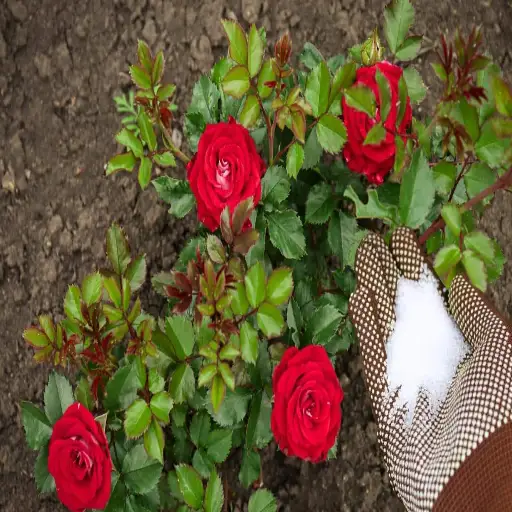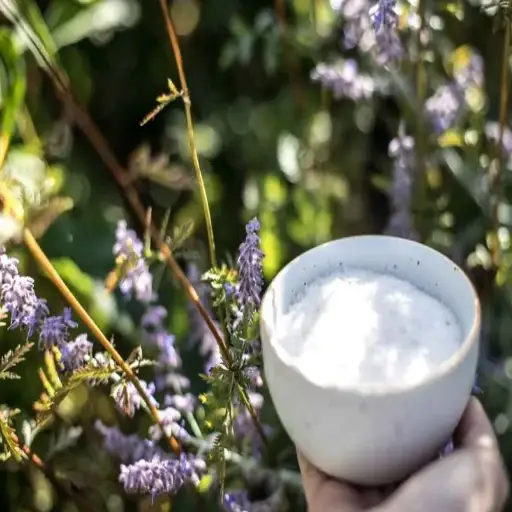Proper nourishment is essential for the health and productivity of your citrus fruit trees. Using organic fertilizers not only supports sustainable gardening practices but also enhances soil fertility without the harmful effects of synthetic chemicals. This blog will delve into the best organic fertilizer options available for citrus trees, outlining their benefits, application methods, and the specific nutrients they provide. Whether you are a seasoned gardener or a beginner, understanding these options will help you make informed decisions to ensure your trees thrive and produce bountiful, delicious fruits.
Why Do Citrus Trees Need Special Fertilizer?
What are the Necessary Nutrients for a Healthy Citrus Tree?
For orange trees to grow well, they require a careful mix of macro- and micronutrients. Chief among these macro elements are nitrogen (N) phosphorous (P) and potassium (K). Nitrogen is critical for vigorous growth, leaf development, and overall health. Phosphorus helps root production in addition to flower and fruit formation while potassium improves fruit quality as well as disease resistance. Besides these macro nutrients, citrus trees also need essential micro nutrients like magnesium (Mg), calcium (Ca), iron (Fe), zinc (Zn) and manganese (Mn) which aid different physiological processes and stop deficiencies happening. To make sure that your citrus trees stay healthy and productive you have to manage nutrients properly.
How Does Organic Citrus Tree Fertilizer Benefit the Soil?
The soil maintains various benefits when the organic fertilizer for orange tree is used on it. First of all, they improve soil structure by increasing its organic matter content, which enhances aeration and water retention capabilities. This leads to healthier root systems and better nutrient absorption. Secondarily, organic fertilizers boost beneficial microorganisms’ growth together with earthworms which breakdown organic matter into plant available forms releasing nutrients from them at the same time. Furthermore, their use reduces toxic levels of chemicals in soils thereby maintaining balanced ph levels besides decreasing soil toxicity. Finally, they give out a slow steady release of nutrients that ensure sustained feeding for trees while minimizing chances of nutrient leaching occurring in the ground. As such organic fertilizers help to create a healthier soil ecosystem that is key to long-term vitality of your orange trees.
What Happens if Citrus Trees Lack Proper Nutrients?
The lack or insufficient supply of proper nutrients causes many symptoms which can hinder their growth, healthiness or productivity by citrus trees suffering from different conditions such as:
Nitrogen Deficiency(N)
- Symptoms: Yellow or pale green leaves, stunted growth and poor fruiting.
- Parameters: The leaf nitrogen content should be between 2.2 to 2.7%.
Phosphorus Deficiency (P):
- Symptoms: Dark green leaves turning purplish, slow growth rate and late maturing.
- Parameters: In leaves the optimum phosphorous range is 0.12-0.16%.
Potassium Deficiency (K)
- Symptoms: Yellowing of the leaf margins, weak stems and inferior fruits.
- Healthy potassium levels should be between 1.2% to 1.7%
Magnesium Deficiency (Mg):
- Symptoms: Interveinal chlorosis (yellowing in-between veins) and Loss of leaves
- Parameters: Magnesium levels in leaves should be around 0.3 to 0.5%.
Calcium Deficiency (Ca):
- Symptoms: Burnt leaf edges, blossom end rot and bad root systems.
- Sufficient calcium content is about 3% –4 %.
Iron Deficiency(Fe):
- Symptoms: Discounted young leaves while veins stay green(chlorosis).
- Parameters: Iron concentration within the range of 60-120 ppm(parts per million)
Zinc Deficiency(Zn):
- Symptoms include small leaves resulting into reduced sizes as well as a condition called “little leaf”.
- The amount of zin for healthy orange trees ranges from about 25 to100 ppm
Manganese Deficiency(Mn):
- Leaf spots are interveinal chlorosis like iron deficiency symptoms that are referred to as manganese deficiency.
- Manganese levels in healthy leaves are about25 to100 ppm
There is need therefore for proper nutrient management along with frequent soil or leaf analysis so that citrus trees do not have deficiencies even as they become productive and healthy at their fullest potential.
What Are the Key Components of an Effective Organic Citrus Tree Fertilizer?
Understanding the Role of NPK in Fertilizer
The three major macronutrients in fertilisers, Nitrogen (N), phosphorous (P) and Potassium (K), are often referred to as the NPK ratio. Each nutrient has an important role to play in plants’ growth:
- Nitrogen (N): It is necessary for vegetative growth, is a major constituent of chlorophyll which plants use during photosynthesis. It helps attain abundant foliage and healthy green appearance.
- Phosphorus (P): It is critical for energy transfer within the plant and it supports root establishment, flowering and fruiting processes. DNA and RNA are built with its help; thus, it plays a crucial role in cell division and expansion processes.
- Potassium (K): This nutrient regulates water balance within the plant, increases disease resistance and improves the quality of fruits. It also takes part in activation of enzymes as well as synthesis of proteins and sugars.
If you understand what your citrus trees need specifically, including their NPK ratio among other things about them such as if they are growing organically then you will be able to give them adequate amounts of these nutrients as so that they grow strongly producing good harvests all through. With regular soil testing procedures or leaf analysis to find out precisely what is needed by your citrus trees alone or any other particular element that might have gotten off somehow from optimal levels on your farm.
Importance of Micronutrients in Citrus Fertilizers
While nitrogen, phosphorus, potassium are very essential for growth of citrus trees there should be attention paid equally on their overall healthiness and productivity related micronutrients. These essential micronutrients include iron, manganese,zinc,copper,boron,and molybdenum;
- Iron (Fe): The deficiency can lead to chlorosis where young leaves turn yellow because iron is vital in chlorophyll production hence overall plant metabolism
- Manganese(Mn): It is essential for photosynthesis and enzyme activation as it forms the oxygen in the process of photo-synthesis
- Zinc(Zn): This element is crucial for protein synthesis and regulation of growth, its deficiency leads to smaller leaves with poor fruit set.
- Copper(Cu): Copper performs a dual function: important in carbohydrate and nitrogen metabolism; involved in immune functions and lignin synthesis
- Boron (B): Boron contributes to cell wall development and reproductive processes, hence lack of this micronutrient can lead to unhatchable fruits with very few flowers.
- Molybdenum (Mo): Molybdenum is required in very small quantities for nitrogen fixation and protein synthesis. When absent, stunted growth with pale leaves might be experienced.
Incorporating these micronutrients into your citrus fertilizer regimen can correct and prevent deficiencies thus ensuring optimum plant health, vigorous growth, and abundant fruit production. Moreover, regular soil and leaf tissue tests can help you identify specific micronutrient needs so that you can supplement them accurately.
How Does Kelp Fertilizer Enhance Fruit Tree Growth?
There are numerous benefits to using kelp fertilizers made from seaweeds which improve overall healthiness and productivity of fruit trees. Firstly, kelp contains a lot of minor elements like potassium magnesium as well as trace elements involved in various physiological processes within the plant cells. These nutrients help improve soil structure while also enhancing root development through increased beneficial microbial activity.
Secondly, kelp fertilizers contain natural hormones such as cytokinins auxins gibberellins. These hormones increase cell division resulting into elongation which strengthens stems leading to healthier foliage plus improved setting of fruits. Moreover, it has alginic acid compounds that aid water retention around the root area reducing water stress thus sustaining plant growth during periods of drought.
This is further enhanced by kelp, which toughens the plant’s defenses against hard conditions such as drought, frost and insects. Resilience comes from the presence of antioxidants and protective compounds in seaweed (kelp) that enhance the immune system of such plants and improve their natural defense mechanisms. By applying kelp fertilizers regularly, one can establish high yielding fruit trees that are also strong because this type of plant growth increases robustness of fruit crops.
How to Choose the Right Organic Fertilizer for Citrus Trees?
Assessing Different Types Of Organic Citrus Fertilizers
The nutrient composition of the fertilizer, organic certification, and unique requirements for growing citrus plants are some of the factors to consider when evaluating different types of organic citrus fertilizers. According to top three sources:
- SHANDONG LOYAL CHEMICAL Citrus Fertilizer: This has a well-balanced NPK blend that comprises essential micronutrients, minerals and mycorrhizae needed for good root development and disease resistance. The slow release feature ensures that nutrients will be supplied slowly over time thus reducing any risk of over fertilizing.
- Jobe’s Organics Fruit & Citrus Fertilizer Spikes: These are made in the form of spikes that can be pre-measured making them excellent for balanced nutrition directly to the root zone. They have a mixture of beneficial bacteria along with mycorrhizal fungi which helps soil conditioning together with improved nutrient uptake by plants. Jobe’s spikes are specifically designed for fruit trees as well as citrus fruits hence providing all necessary nutrients needed for their best growth and fruit production.
- Espoma Citrus-Tone Plant Food: Espoma’s Citrus-Tone is a widely-accepted option because it is derived from natural ingredients and covers an inclusive range of nutrients including trace elements. It contains Bio-tone microbes which function towards enhancing soil fertility leading to healthy roots. Its use is associated with enhancement in fruit size and yield without application synthetic chemicals.
In choosing an organic citrus fertilizer therefore, always ensure it adheres to proper regulatory standards regarding organic farming practices while also considering specific growth requirements and plant conditions. Follow product instructions for regular application purposes so as to maintain their healthy appearance and productivity.
When Is the Best Time to Apply Fertilizer on Citrus Trees?
When applying fertilizers on citrus trees, one should always make sure they are applied during times when they grow actively . Generally early spring, late spring ,and late summer are some of the best timings . Specifically, the first application should be made in early spring just as new growth begins. As another solution, a second application can be done in late spring to support continued development of fruits and flowers. Lastly in late summer has been highlighted to be the final time since by then the trees need adequate nutrients for fruit maturation and initiation of next year’s growth cycle. It should be noted that fertilizer must not be applied during fall or winter because new growth stimulated by it may freeze if exposed to cold weather conditions. To achieve best results, always follow recommended quantities on the label of your fertilizer and make necessary adjustments according to specific needs and environmental conditions of your citrus trees.
How to Apply Organic Citrus Fertilizer for Optimal Results?
Step-by-Step Guide to Fertilizing Citrus Trees
- Know the Right Fertilizer
Pick an organic citrus fertilizer with high amounts of nitrogen, phosphorous, and potassium. Find products that meet organic criteria and are produced precisely for citrus trees.
- Measure the Correct Amount
Size and age determine how much fertilizer is required for your tree. Young trees often require less of a fertiliser while mature ones will need more than others to grow well. Always follow instructions from the manufacturer.
- Apply at the Right Time
Apply three times year in early spring as new growth begins, in late spring after fruit has set and again in late summer during fruit development stage.
- Distribute Evenly
Ensure that you spread it uniformly under the canopy of this tree so that it is approximately one foot away from the trunk, hence reaching the roots.
- Water Thoroughly
To help break down these nutrients and facilitate absorption by roots, water area thoroughly after applying fertilizer.
- Mulch
Spread a mulch layer around base of tree which should be organic so as to retain moisture as well as suppress weed growth within two or three inches from where trunk starts so as prevent rotting.
- Monitor and Adjust
Track how healthy your citrus plants are frequently plus adjust when necessary based on growth and production of fruits.
Following these steps can help ensure your citrus trees receive the optimal nutrients they need for healthy growth and abundant fruit yield. Always tailor the process to your specific tree needs and local growing conditions for the best results.
Common Mistakes to Avoid When Fertilizing
- Over-Fertilizing: Applying too much fertiliser is among common mistakes people do while dealing with fertilizer application since this may result into nutrient burn which could damage roots thus making them small or sometimes kill them altogether hence always adhere to recommended quantities.
- Under-Fertilizing: Conversely, failure to apply sufficient fertilizer may cause a deficiency of important nutrients in your citrus trees that will lead to poor growth, weak fruit set and may increase susceptibility to pests and diseases. Remember to closely follow recommendations and adapt as the tree grows and its health improves.
- Using the Wrong Fertilizer: All fertilizers are not made equal for example using a general-purpose rather than one designed specifically for citrus trees might cause imbalanced nutrient uptake. To get the best results, look for those ones that meet organic criteria and have been developed precisely for these kinds of plants.
- Incorrect Timing: When fertilizer is applied at wrong time, it retards growth of your plant therefore hindering fruit development processes. So, fertilize early spring, late spring and late summer as detailed above for a complete year.
- Neglecting Soil Health: Ignoring soil’s overall health can derail your fertility efforts. Conduct frequent soil tests or as needed to keep proper balance in pH level, nutrients’ quantity and organic matter content.
Avoiding these common pitfalls can significantly improve the health and productivity of your citrus trees. Carefully choosing the type, timing, and amount of fertilizer you apply will help ensure that your trees flourish with abundant high quality fruits.
Can I Use the Same Fertilizer for Citrus and Avocado Trees?
Synthesizing Citrus and Avocado Nutrient Needs
While both citrus and avocado trees have some similarities in terms of their nutrient requirements, there are also important differences. Although they all require nitrogen, phosphorus, and potassium, the ratios may differ. A proper ratio of these three main nutrients along with other micronutrients such as magnesium, calcium and manganese is crucial for a balanced fertilizer to be best suited for citrus trees. On the contrary, avocado trees need higher amounts of nitrogen than either phosphorus or potassium especially during vegetative growth stages. Also avocados are chloride sensitive and salt sensitive therefore it’s necessary to apply fertilizers low in these minerals. Even though you can sometimes use the same fertilizer for both types of trees that is usually not recommended because each type has specific needs which must be met through nutrient supply.
What to Consider When Using Combination Fertilizers
There are several considerations to make when using combination fertilizers for both citrus and avocado plants in order to keep them healthy and productive. First select a fertilizer whose NPK balance is ideal for citrus but has slightly more nitrogen so as to cater for the needs of an avocado plant. Somewhere between 8-4-8 or 6-3-6 should be enough to get started on this. Moreover, go for low chloride content fertilisers since Avocado fruits have high susceptibility towards this element among others like salt. In addition slow release fertilizers will help your plants maintain soils’ nutritional levels over time minimizing chances of messing up due to overfertilization leading to fertilizer burn.
Additionally monitoring soil pH levels is crucial where one should strive at attaining pH 6 from 7 specifically targeting citrus while ensuring acid soil reactions are sustained during planting avocados which range from approximately 5.5 – 6 . Regular soil testing enables you modify your soil improvement approach accordingly.
In conclusion by selecting an appropriate nutrient ratio in a balanced fertilizer that takes into account the problem of chloride and salt sensitivity, in addition to maintaining correct soil acidity levels, it is possible to apply combined fertilizers for both citrus and avocado plants.
Frequently Asked Questions (FAQs)
Q: What makes Espoma Organic Citrus-Tone a good option for citrus trees?
A: What makes this fertilizer great is that it is an OMRI listed, all-natural plant food designed specifically for lemon trees and other citrus plants. It has a balanced NPK ratio of 5-2-6 with organic components such as feather meal and kelp meal that promote healthy growth and fruit production.
Q: How often should I apply a citrus mix 6-3-3 fertilizer to my lemon tree?
A: To let your lemon tree grow well you need to use the citrus mix 6-3-3 fertilizer three times annually. The best time to apply is in early spring, late winter, and midsummer so that the growing season covers your trees’ nutritional needs.
Q: Can I use a granular plant fertilizer for my potted citrus trees?
A: Yes I can use granular plant fertilizers on potted citrus trees. The label will usually tell you how much to use (in tablespoons per gallon of pot size). For potted plants, granular fertilizers release nutrients slowly.
Q: Is the citrus mix 6-3-3 suitable for indoor and outdoor plants?
A: Absolutely! This means that it can be used in both indoor and outdoor environments. This means you can use this balanced plant food on Meyer lemon trees indoors or oranges outdoors for healthy growth and fruiting.
Q: What are the benefits of using an OMRI listed fertilizer for my citrus trees?
A: Using OMRI listed fertilizers guarantees real organic matter in your fertilizers being applied to your garden. These products are approved for organic gardening as they do not contain any toxic chemicals thus making them safe to the nature as well as fruit growers.
Q: How should I fertilize new plantings of citrus trees?
A: When planting new seedlings, the recommended procedure is mixing the fertilizer with the soil at time of planting. Use a balanced fruit tree fertilizer like citrus mix 6-3-3 and mix it with the backfill soil. The objective is root development and growth from day one as it ensures adequate supply of necessary nutrients.


